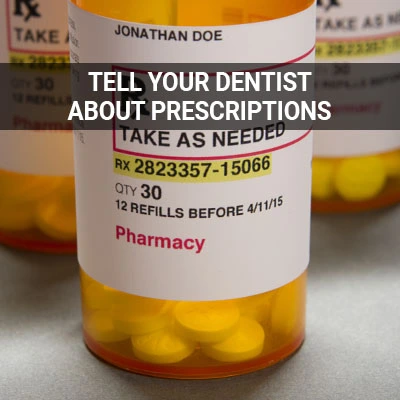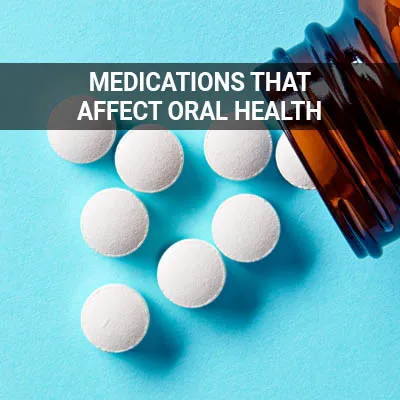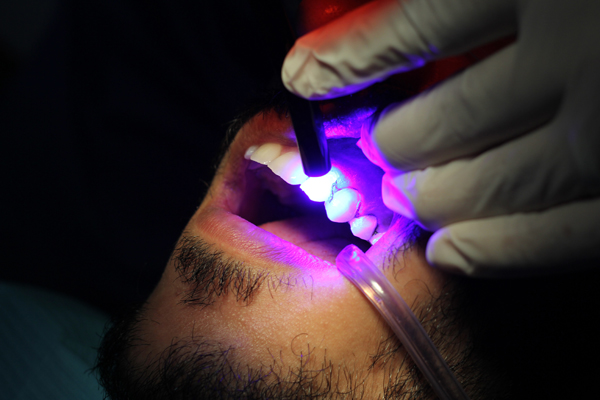Dental Health and Preexisting Conditions Charleston, SC
Many people do not realize that the systems of the body are all interrelated. Preexisting conditions can affect dental health and vice versa. A complete health dentist can help you better understand the oral-systemic link and treat your overall health.
Oral-systemic coverage is available at Hudgens Dental in Charleston and the surrounding area. We are proud to offer complete health dentistry for preexisting conditions and more. Call us today at (843) 556-7437 to schedule an appointment or to learn more about our services.
Pre-existing Conditions Affected By Dental Health
Pre-existing conditions are conditions that a person has been diagnosed with before enrolling in a dental health insurance plan. The connection between oral and overall health means that a patient's dental health can affect certain pre-existing medical conditions. Dental issues, such as gum disease and infections in the gums and teeth, can adversely impact people's pre-existing health conditions.
Dental health has a connection to chronic diseases, including diabetes and heart disease. When a person has gum disease, the bacteria can cause their blood sugar level to rise, making diabetes more difficult to control. Poor dental health can also affect people with heart disease since a bacterial infection in the bloodstream can impact the heart valves.
“The connection between oral and overall health means that a patient’s dental health can affect certain pre-existing medical conditions.”
Creating a Health Plan For Pre-existing Conditions
Dentists can create health plans to prevent a patient's oral health from adversely impacting their pre-existing conditions. Our team creates personalized treatment plants to strengthen patients' oral and overall health. Dental care goes beyond the mouth. We understand the connection between the mouth and the rest of the body. This well-rounded approach allows us to devise the optimal health plan for a patient. To develop the most accurate diagnosis and treatment plan, we will consider how a patient's dental health affects their pre-existing conditions and vice versa.
“Dentists can create health plans to prevent a patient’s oral health from adversely impacting their pre-existing conditions.”
Preexisting Conditions, Complete Health Dentistry, and Insurance
Insurance companies typically define preexisting conditions as those conditions a patient had either been diagnosed with or received treatment for before enrolling in their current health plan. Examples include chronic illnesses, depression, diabetes, epilepsy, lupus, various forms of cancer, and more. Since January 1, 2014, it has been illegal for health insurance companies to refuse to cover or charge individuals more for their preexisting conditions, nor can they limit benefits for such conditions.
No insured person can be denied treatment for their preexisting conditions. As such, it is easier than ever for patients to find the right insurance policy for them. Still, certain health insurance plans may be a better fit for certain conditions. Those with chronic or ongoing illnesses, for instance, may benefit from choosing policies that allow more frequent care. Patients must have a comprehensive understanding of their medical needs when selecting a health insurance plan. For many, this can begin with a consultation with a complete health dentist.
“Patients must have a comprehensive understanding of their medical needs when selecting a health insurance plan.”
Check out what others are saying about our dental services on Yelp: Dental Health and Preexisting Conditions in Charleston, SC
Treatments For Different Conditions
Depending on the patient's conditions and needs, dentists provide various treatments to improve their oral health and overall well-being. In particular, treating tooth decay and gum disease is important to minimize the risk of worsening other systemic health conditions. Treatments of tooth decay and gum disease depend on the severity of the patient's condition.
Some treatment options for tooth decay include:
- Crowns
- Dental fillings
- Fluoride treatments
- Root canals
- Tooth extraction
Gum disease treatment can be surgical or non-surgical. Non-surgical options include professional dental cleanings during a routine dental check-up or the deep cleaning treatment, scaling and root planing. Surgical options are available for more serious cases of gum disease, such as pocket reduction surgery, bone grafts, and soft tissue grafts. In other cases, patients may take antibiotic medications to reduce or eliminate the bacteria associated with gum disease.
“Treatments of tooth decay and gum disease depend on the severity of the patient’s condition.”
Questions Answered on This Page
Q. How can I find an insurance plan that will cover my preexisting conditions?
Q. What pre-existing conditions are affected by dental health?
Q. What ways does a dentist create a health plan for pre-existing conditions?
Q. What are some treatments for different dental conditions?
People Also Ask
Q. What are some of the common dental conditions that occur during pregnancy?
Q. What lifestyle choices help promote good oral health?
Frequently Asked Questions
Q. What are the risk factors associated with gum disease?
A. One of the main risk factors for gum disease is plaque from insufficient oral hygiene. Smoking, tobacco usage, and medications can also contribute to gum disease. People with certain genetic markers, systemic diseases, or a tendency to clench or grind teeth may also have an increased risk of developing gum disease.
Q. What are the symptoms of a cavity?
A. Cavity symptoms will vary depending on their location and their severity. The beginning stages of tooth decay may not cause any symptoms. However, as the decay progresses, people may experience tooth pain, sensitivity, visible holes or pits, tooth discoloration, or pain when biting.
Q. What happens if I do not have a cavity treated?
A. Cavities can lead to various complications, including pain, swelling, chewing issues, and teeth shifting. Without treatment, a cavity can progress into an abscess or a pocket of pus. This infection can spread and even become life-threatening in extreme cases.
Q. What are the symptoms of gum disease?
A. Healthy gums appear pink and fit tightly around teeth. People with gum disease may have red or purplish and swollen gums that bleed easily. Teeth may also appear longer as the gums recede and the periodontal pockets grow in size.
Q. What happens during scaling and root planing?
A. Scaling and root planing treats chronic gum disease. During scaling, we will remove the plaque from teeth and pockets between the teeth and gums. Root planing involves smoothing out the tooth roots to help the gums reattach to teeth.
Dental Terminology
Call Us Today
If you live in the Charleston area, call 843-556-7437 for an appointment in our Charleston office.
Helpful Related Links
- American Dental Association (ADA). Glossary of Dental Clinical Terms. 2025
About our business and website security
- Hudgens Dental was established in 1996.
- We accept the following payment methods: American Express, Cash, Check, Discover, MasterCard, and Visa
- We serve patients from the following counties: Charleston County
- We serve patients from the following cities: Charleston, Mount Pleasant, James Island, Ravenel, Meggett, North Charleston, Daniel Island, and West Ashley
- Healthgrades. View Background Information and Reviews
- Norton Safe Web. View Details
- Trend Micro Site Safety Center. View Details
Back to top of Dental Health and Preexisting Conditions










